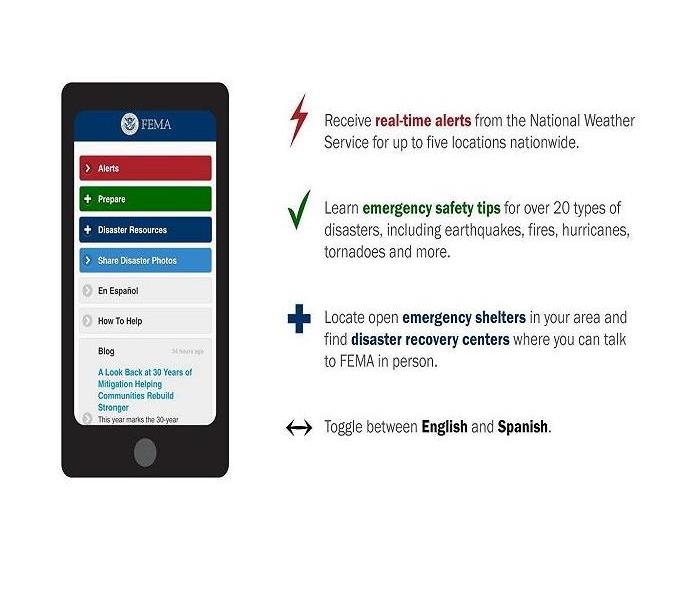National Preparedness Month Week 4: Save For an Emergency
9/24/2018 (Permalink)
 The FEMA app is an excellent source of information like real-time alerts and locations of emergency shelters.
The FEMA app is an excellent source of information like real-time alerts and locations of emergency shelters.
You have put in the effort, and you have the supplies, you have the skills, and you are adequately insured for a disaster. But are you financially ready for the challenges that go along with recovering and rebuilding after an emergency?
Financial planning is more than just setting money aside; it also means keeping essential documents and records in a safe and secure place. Ready.gov has a guide to make securing and retrieving these documents easier, the Emergency Financial First Aid Kit (EFFAK), that when used along with a secure mobile app, safety deposit box, or external hard drive, makes starting the recovery process even faster. Take advantage of these services to safeguard your critical documents:
Household
- Photo ID to prove the identity of household members
- Birth certificate to maintain or re-establish contact with family members
- Social security card to apply for FEMA disaster assistance
- Military service
- Pet ID tags
Medical Information
- Physician information to provide doctors with health information if medical care is needed
- Copies of health insurance information to ensure existing care continues uninterrupted
- Immunization records
- Medications
Legal and Financial Documents
- Housing Payments to identify financial records and obligations
- Insurance policies to re-establish financial accounts
- Sources of income to maintain payments and credit
- Tax statements to provide contact information for financial and legal providers & apply for FEMA disaster assistance
Preparation is a very time-consuming process, and you may miss crucial items if you wait until the last minute to start. Staying prepared will prevent you from having to get prepared, and will allow you to be able to handle any emergency that comes your way.






 24/7 Emergency Service
24/7 Emergency Service